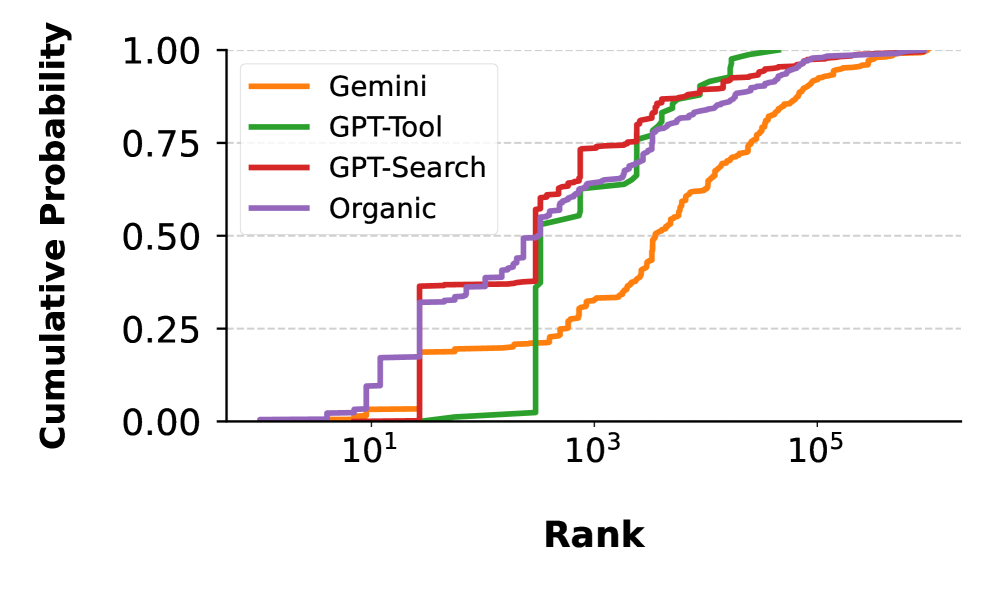AI-Generated Search Results: A New Era in Information Retrieval
Introduction to AI-Generated Search Results
Recent studies have compared the differences between traditional search engine results and AI-generated search results. The researchers found that while AI-generated results may not be necessarily “worse,” they do have distinct characteristics. For instance, GPT-based searches were more likely to cite sources like corporate entities and encyclopedias, while almost never citing social media websites.
Comparing AI-Generated and Traditional Search Results
An LLM-based analysis tool found that AI-powered search results tended to cover a similar number of identifiable “concepts” as the traditional top 10 links, suggesting a similar level of detail, diversity, and novelty in the results. However, the researchers also found that “generative engines tend to compress information, sometimes omitting secondary or ambiguous aspects that traditional search retains.” This was especially true for more ambiguous search terms, such as names shared by different people, for which “organic search results provide better coverage.”
Advantages and Limitations of AI-Generated Search Results
The AI search engines also have an advantage in being able to weave pre-trained “internal knowledge” in with data culled from cited websites. This was especially true for GPT-4o with Search Tool, which often didn’t cite any web sources and simply provided a direct response based on its training. However, this reliance on pre-trained data can become a limitation when searching for timely information. For search terms pulled from Google’s list of Trending Queries for September 15, the researchers found GPT-4o with Search Tool often responded with messages along the lines of “could you please provide more information” rather than actually searching the web for up-to-date information.
Conclusion
While the researchers didn’t determine whether AI-based search engines were overall “better” or “worse” than traditional search engine links, they did urge future research on “new evaluation methods that jointly consider source diversity, conceptual coverage, and synthesis behavior in generative search systems.” The study highlights the need for further investigation into the strengths and weaknesses of AI-generated search results.
Frequently Asked Questions
Q: What are AI-generated search results?
A: AI-generated search results are search results generated by artificial intelligence algorithms, which can provide direct answers to user queries based on pre-trained data and cited websites.
Q: How do AI-generated search results differ from traditional search results?
A: AI-generated search results tend to cover a similar number of identifiable “concepts” as traditional search results, but may omit secondary or ambiguous aspects and rely more on pre-trained data.
Q: What are the advantages and limitations of AI-generated search results?
A: The advantages of AI-generated search results include the ability to weave pre-trained “internal knowledge” in with data culled from cited websites, while the limitations include the potential to omit timely information and rely too heavily on pre-trained data.











